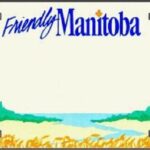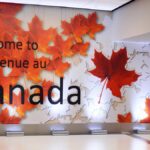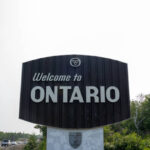
Ready to come to Canada?! I am excited that you now have your permanent resident approval and you are good to go!
This is a list of things to do as a new permanent resident in Canada. Keep these things on your to-do list as you plan your final arrival in Canada.
1) Arrange accommodation
Given the current housing situation, you may need to start looking for a house before arrival and have a places you are finalizing. To get support for your rental needs in Canada, talk to Payfi here.
They have some support for newcomers who are trying to find a place to stay in Canada.
If you know people in the city you are heading to, they could also be of help. I personally don’t advise you to sign a long lease before arrival, its good to inspect first and be sure (or get someone to inspect for you before you arrive in Canada).
To search for houses, you can use Kijiji, Facebook Market, rent faster, rent board, 4rent, rent seeker, or realtors website
You can also use Air BnB to find a place to stay for a few days or weeks so you can arrive and start to do your house search in person.
2) Sign up for pre-arrival and newcomer services
Canada cares about you and wants you to succeed here. There are resources both before leaving your country and upon arrival in Canada. See the links below:
- Pre-arrival services are available here
- Newcomer or arrival services are available here
- Resources to prepare for life and work in Canada are available here
- You can also start your job search even before you arrive in Canada and you will find helpful resources and websites to search for job here.
3) Plan where to stay ahead
If you are not a provincial nominee, an Atlantic Immigration program applicant, or a Rural and Northern Immigration Pilot applicant, you can reside anywhere in Canada.
Do your research and know where would suit you. There are so many things to put into consideration before deciding where to live.
If you want to follow the money, you can compare how much you could make in different parts of the country or between occupations. The information could also be used to decide your job/employment prospects. Compare your wages on the Government of Canada outlook tool here
4) Your PR Card
What you have from your country is the single-entry immigrant visa and confirmation of permanent residence (COPR) document. When completing your landing at the port of entry, you will need to provide a Canadian address where your PR Card can be sent to. Make sure you have one.
Your single-entry immigrant visa is canceled once your landing is completed and the PR card will be sent by mail to the Canadian address provided. The PR card becomes your travel “visa” in and out of Canada until you become a citizen. It is valid for 5 years and is renewable.
To renew the PR card you need at least 2 years of accumulated stay in Canada. To be eligible for citizenship you must have 3 years of accumulated stay (within the last 5 years of applying).
A signed copy of your COPR will also be given to you after completing the landing process. Please keep your Confirmation of PR (COPR) document even after receiving a PR Card. You may need it to apply for Old Age Security Pension and other benefits when you are aged 65 and older. It’s your lifetime proof of permanent arrival in Canada.
If you’ve lost the CoPR by then, you can apply for a Verification of Landing document when one is needed. More information on this is available here.
5) Get your Social Insurance Number
You will need the S.I.N to legally work in Canada. You may be able to get one at the airport upon arrival (please ask when landing). If not, locate a Service Canada office near you, and go with your document. You can find a Service Canada near you here or apply online here.
It is more advisable to go in person to avoid delays.
6) Open Bank Account
You may need to book an appointment with a financial advisor. Popular Banks in Canada are RBC, Scotia, BMO, CIBC & TD I will advise you to find out which one offers the best incentive to newcomers.
Also, if you are coming to Canada with foreign currencies, or US Dollars, change your foreign currency at the bank not at the airport. You will get better exchange rates at the bank.
7) Get a Phone (Number)
There are many phone service providers here. Find the one that offers the best incentive to newcomers. Some also have family packages. If you have a good phone, you may consider getting a prepaid number or sign a phone contract without getting a phone. That saves you the extra cost of a new phone.
8) Get your health insurance or health card
In some provinces, newcomers are not covered by the government insurance until you’ve lived in the province for some time. Your health is important, please find out what applies to you and sort out a government or private insurance.
9) Get a Driver’s License
Driving in Canada is regulated. The licensing procedure is also different in each province. Find out what applies to your province and follow the procedure. This is also important because some jobs will require you to have a Canadian Driver’s license.
In some provinces like Saskatchewan, you are allowed to drive for up to 90 days with the license from your home country, so you may want to come with a valid one.
10) Your vehicle insurance
It is a serious offense to drive a vehicle that is not insured or registered in Canada. If you’re caught driving without insurance, your car could be impounded and/or your driver’s license suspended. Insurance rates are also different in each province.
11) Get a Provincial ID Card
Many places in Canada require you to provide two pieces of Government-issued photo ID to access certain resources. As a newcomer, a Provincial ID comes handy for this purpose. Find out how to get one in your city/province, and you’re good to go.
12) School enrolment/childcare for kids
If you are thinking whether the school system is different in each province, your guess is right.
Each province manages its own system of education, so the policies are different. The cost of childcare also varies. But generally, there is free public education for all Canadian residents from kindergarten to high school.
The childcare waitlist is also very long in some places. Please make an inquiry about the cost and requirement as soon as possible (if you need daycare or school for your kids) There are benefits provided by the government to assist you. Details here.
13) The Taxes
Aside the taxes you pay as an employee, you will also pay goods and services, harmonized sales, or provincial sales taxes on the things you buy. However, after filing your tax, you may be eligible for the GST/HST credit payment. Details here.
14) Build your network
You will need a lot of networking to get by. Either to meet new friends, know your way around, get a job or stay up to date about things happening around you. One of the cool ways to meet new people is to be a volunteer. Look for any opportunity around you.
15) Be good to yourself
You are in a new country, it’s a new experience and you may be starting a lot of things all over again Things may also be slow in the beginning, and you will miss the things/people you left back at home. Please take the time to enjoy and be good to yourself. Welcome to Canada!
There are many things to do as a newcomer, but these are 15 helpful things to get started with. If you come across this post and have a few more tips to share, please leave a comment for others to learn from you.
If you have questions on Career & Personal Development, Personal Finance, or Building a Personal Brand and want to reach out to us, check what we have here.
DISCLAIMER: The posts and information on this website are not legal advice. We are not Canadian Immigration Consultants and do NOT provide Canadian Immigration Services. For any authorized Canadian Immigration information, services, or support, please check the Government of Canada website at www.canada.ca/immigration
© Olu of Canada





Thank you Olu.
Please which province do you advice is good for a newcomer from Nigeria? Please when providing this advice take into consideration that the newcomer is female and single.